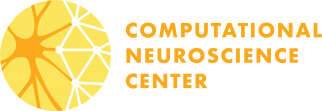Former Swartz Postdoctoral Fellows

Stefano Recanatesi
Stefano uses tools at the interface of theoretical neuroscience and machine learning to seek understanding of how the brain processes information. His work at the UW aims to elucidate mechanisms of manifold learning seeking to understand how local neuron properties contribute to global circuit function. His work will provide insight into how neural circuits learn, represent and process the immensely complex stimuli encountered in nature. Stefano has a doctoral degree in Theoretical Neuroscience from the Weizmann Institute of Science in Israel and master’s and bachelor’s degrees in Theoretical Physics from Scuola Normale Superiore, Italy.

Argha Mondal
Argha received his Ph.D. degree in Applied Mathematics at Indian Institute of Technology (Indian School of Mines), Dhanbad, India in 2018. His research interests are Mathematical and Computational Neuroscience. Currently, he is working on neural networks modeling for learning. Apart from research, he enjoys playing Tabla, a musical instrument, reading Bengali story books and cooking.

Merav Stern
Merav received her Ph.D, in honor,. from Hebrew University’s Interdisciplinary Center for Neural Computation, in collaboration with Columbia University’s Center for Theoretical Neuroscience. In her Postoctoral work Merav is striving for a deeper understanding of how our brains process information. Her work seeks to identify brain areas that alter their activity during the course of learning a visually-guided behavioral task. Her approach incorporates mathematical tools to reveal, understand and model neural recordings and trained artificial networks

Charles Delahunt
Charles was a visiting Swartz Scholar in 2018, working with Nathan Kutz.

Pamela Baker
Pamela was a visiting Swartz Scholar in 2018, working with Wyeth Bair. She currently works at the Allen Institute for Brain Science on the Data & Technology team.

Kamesh Krishnamurthy
Kamesh was a visiting Swartz Scholar in 2018, working with Adrienne Fairhall. Kamesh is currently a C.V. Starr Fellow and CPBF Fellow at Princeton University.

Ares Fisher
Ares was a visiting Swartz Scholar in 2023, working with Rajesh Rao.

Leenoy Meshulam
Leenoy investigates how function and computation emerge from the coordinated activity of large neuronal populations. She is particularly interested in the interface between physics and neuroscience, and in developing theoretical approaches that can uncover not only the principles of brain function but also new physics concepts guiding this complex biological system. Recent work of Leenoy’s includes modeling the collective activity of hippocampal neurons, writing down Ising models (maximum entropy) for population activity, and using renormalization group-like approaches to coarse-graining neural dynamics.
Leenoy received her PhD from Princeton University, advised by William Bialek, David Tank and Carlos Brody. Earlier, she completed her Masters studying physics and biology in the Lautman honors program in Tel Aviv University.
She loves large waterfalls, fresh snow, Debussy and dark chocolate.
leenoy at uw dot edu

Fereshteh Lagzi
Fereshteh has a background in Control theory, Machine learning, and Theoretical Neuroscience. During her PhD at Bernstein Center Freirburg, she investigated nonlinear dynamics of interaction and competition between subnetworks of spiking networks. Later, she showed that residual neural networks (a type of ANNs) also follow similar dynamics of competition. She is currently interested in plasticity and dynamics of learning, and in particular how inhibitory neurons shape these dynamics. Fereshteh aims at finding emerging network properties that can explain functions and computation in the brain. To this end, she uses tools such as control theory and nonlinear dynamics.

